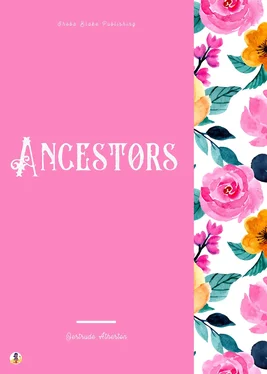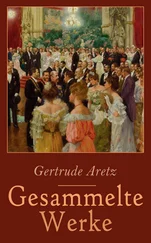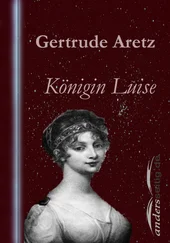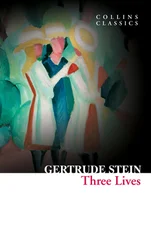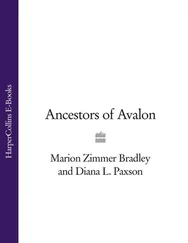Gertrude Atherton - Ancestors
Здесь есть возможность читать онлайн «Gertrude Atherton - Ancestors» — ознакомительный отрывок электронной книги совершенно бесплатно, а после прочтения отрывка купить полную версию. В некоторых случаях можно слушать аудио, скачать через торрент в формате fb2 и присутствует краткое содержание. Жанр: unrecognised, на английском языке. Описание произведения, (предисловие) а так же отзывы посетителей доступны на портале библиотеки ЛибКат.
- Название:Ancestors
- Автор:
- Жанр:
- Год:неизвестен
- ISBN:нет данных
- Рейтинг книги:3 / 5. Голосов: 1
-
Избранное:Добавить в избранное
- Отзывы:
-
Ваша оценка:
- 60
- 1
- 2
- 3
- 4
- 5
Ancestors: краткое содержание, описание и аннотация
Предлагаем к чтению аннотацию, описание, краткое содержание или предисловие (зависит от того, что написал сам автор книги «Ancestors»). Если вы не нашли необходимую информацию о книге — напишите в комментариях, мы постараемся отыскать её.
Ancestors — читать онлайн ознакомительный отрывок
Ниже представлен текст книги, разбитый по страницам. Система сохранения места последней прочитанной страницы, позволяет с удобством читать онлайн бесплатно книгу «Ancestors», без необходимости каждый раз заново искать на чём Вы остановились. Поставьте закладку, и сможете в любой момент перейти на страницу, на которой закончили чтение.
Интервал:
Закладка:
He paused and regarded her in some trepidation. In spite of his self-confidence he had had his moments of doubt. And although he had anticipated tears and remonstrance, he was unprepared for the more subtle weapon of amusement, flickering through absolute calm. He suddenly wished that she were younger. He had never given a thought to her age before, but he remembered that she had lived for two years longer than himself, and it made him feel even less than thirty.
“My dear boy,” she said, wonderingly, “I never heard anything so romantic and impossible. Of course it is the American cousin with whom you have been shut up all these weeks that has been putting such preposterous ideas into your head. I always said that nature just missed making you a poet. But if you wish to work out your manifest destiny—to be immortalized in history—you will remind yourself that England is the one place on earth where an Anglo-Saxon can cut a really great figure. Not only because he has the proper background of traditions, but because he has an audience trained to recognize a man’s greatness during his lifetime. If you go in for those unspeakable American politics you will never be given credit for anything higher than your medium; in other words, should you develop into a statesman on American lines you would never be recognized for anything but a successful politician. Even if you survived in their hurly-burly of history, you would be judged by contemporary standards—infused with a certain contempt because you were not American-born.”
“I have thought it all out. The obstacles to greatness, even more than to success, have whetted my appetite for the struggle. I must fight! fight! fight! I must exercise my powers of usefulness to some good end, and now, now, when I am young and ardent. I should go mad sitting round doing nothing. I have no temper for attacking the passive resistance of inertia. I want to fight out in the open. If I fail I will take my beating like a man. But I have not the least intention of failing. I am acutely aware of the powers within me, and I can use them anywhere.”
“Then why not in the Upper House?” she asked, quickly.
“For the reasons I have given you, and because I should fear the results on my character. You know what it means to be a peer of Great Britain. Flattery without accomplishment is demoralizing—would be to me, at all events. It is wine to me when I am achieving, but it would drug me in idleness. Are you so wedded to London?”
“London is the raison d’être of life. Has it occurred to you,” she asked, gently, “that I might refuse to go to America?”
“I was afraid the idea would be something of a shock, but I was sure you would see the matter in my light.”
“It is not wanting in power! But it seems that I am. I have never aspired to the rôle of Amelia Sedley. I have, in fact, rather a pronounced individuality; and yet you have taken upon yourself to dispose of my future as if I were a slip of eighteen—delighted at the prospect of a husband.”
“Indeed you are wrong!” he cried, distressed to have bruised so beloved an ego. “But, I repeat, it was a question I was forced to decide alone. Nor would it have been fair to ask you to assume any part of so great a responsibility. Do you suppose I did not think of that? Do you suppose I have ever lost sight of your happiness? Let me think for both and you shall not regret it.”
She could have smiled outright at this evidence of the ingenuousness of man, but her breast was raging with a fury of disappointment and consternation. She kept her eyes down lest they should betray her. But suddenly she had an inspiration. She controlled herself with a masterly effort, flooded her eyes with tenderness, raised them, and said, softly:
“I do love London, love it with what I called a passion before I—before we met. And I cannot believe that this extraordinary resolution of yours has had time to mature. Promise me at least that you will not apply for letters of citizenship for at least a year after your arrival—”
“I shall apply the day after I arrive in Rosewater.” He steeled himself, for he had had his experience of woman’s wiles; and his faith in masculine supremacy as a habit did not waver. “I only regret that the time of probation must be so long. I am on fire to throw myself into the arena—however, there will be opportunities to make myself known and felt. I have decided to study law meanwhile—and the law, it seems, is a career in itself in America.”
And then he watched her eyes, fascinated. They slowly hardened, until, with the sun slanting into them, they looked like bronze. She was too intent upon studying his own to hide them, and upon arriving at a final conclusion. She reached it in a moment, for to her habit of rapid thought and her understanding of the workings of the masculine mind she owed no little of her supremacy among the clever women of London.
“I see that your decision is irrevocable,” she said. “You are yourself; no one could make or unmake you, and God forbid that I should try. But—and I forbear to lead up to it artistically—I dissever myself from your chariot wheels. I am not afraid of being crushed, for no doubt you would always remember to be polite, if not considerate. I am not sure that you would even permit me to become unrecognizable with dust. But I am no longer plastic. I am thirty-two, and I am as much I as you are you. I shall watch you from afar with great interest, and I sincerely hope, for both your sakes, that Miss Otis will succeed in marrying you. I cannot fancy anything more suitable.”
He had turned white, but he looked at her steadily. He felt as if the round globe were slipping from under him; and vaguely wondered if she had gone about alluding to him as “the marquess.” Then he sprang to his feet, lifted her forcibly from her chair, deposited her on the sofa, and taking her in his arms defied her to dismiss him, to live without him. As the body, so yielding before, declined even to become rigid in resistance, he poured out such a flood of pleading that, believing passion had conquered reason, she flung her arms about his neck and offered to marry him on the morrow if he would promise to remain in England. But there was a crystal quality in Gwynne’s intellect that no passion could obscure. He merely renewed his pleadings; and then she slipped out of his embrace and rose to her feet.
“We are wasting time,” she said. “I always drive before dinner, and I cannot go out in a tea-gown.” She paused a moment to summon from her resources the words that would humiliate him most and slake the desire for vengeance that shrieked within her. She had never hated any one so bitterly before, not even in her youth, when snubs were frequent. For the third time she watched a coronet slip through her strong determined impotent fingers. She could forgive her husband and Brathland their untimely deaths, but for this young man, passionately in love with her, who tossed the dazzling prize aside as an actor might a “property crown,” she felt such a rage of hatred that for almost a moment she thought of giving her inherited self the exquisite satisfaction of scratching his eyes out. But it was too late in her day to be wholly natural, and, indeed, she preferred the weapons the world and her ambitions had given her. As he rose and stared at her doubtingly, she said, without a high or a sharp note, in her clear lisping voice:
“I think it wise to put an end to all this by telling you that I was engaged to Lord Brathland when he died. I was more in love with him than I ever shall be with any one again. You caught me in the violence of the rebound, for I was confused with grief, and distraction was welcome: you are always sufficiently amusing. I have not the least idea it would ever have come off, for, to tell you the truth, my friend, you are too hopelessly the enfant gaté for a woman who is neither young enough nor old enough to crave youth on any terms. As a husband, I fear, not to put too fine a point on it, you would be a bore. At the risk of being thought a snob—to which I am quite indifferent—I will add that as plain John Gwynne you seem to have so shrunk in size as to have become as insignificant as most men are, no doubt, when you catch a glimpse of their unmanufactured side. However”—with the air of a great lady dismissing an object of patronage—“I wish you good-fortune, and sincerely hope that we shall one day read of John Gwynne, senator, and recall for a moment the brilliant Elton Gwynne so long forgotten in this busy London of ours.”
Читать дальшеИнтервал:
Закладка:
Похожие книги на «Ancestors»
Представляем Вашему вниманию похожие книги на «Ancestors» списком для выбора. Мы отобрали схожую по названию и смыслу литературу в надежде предоставить читателям больше вариантов отыскать новые, интересные, ещё непрочитанные произведения.
Обсуждение, отзывы о книге «Ancestors» и просто собственные мнения читателей. Оставьте ваши комментарии, напишите, что Вы думаете о произведении, его смысле или главных героях. Укажите что конкретно понравилось, а что нет, и почему Вы так считаете.
